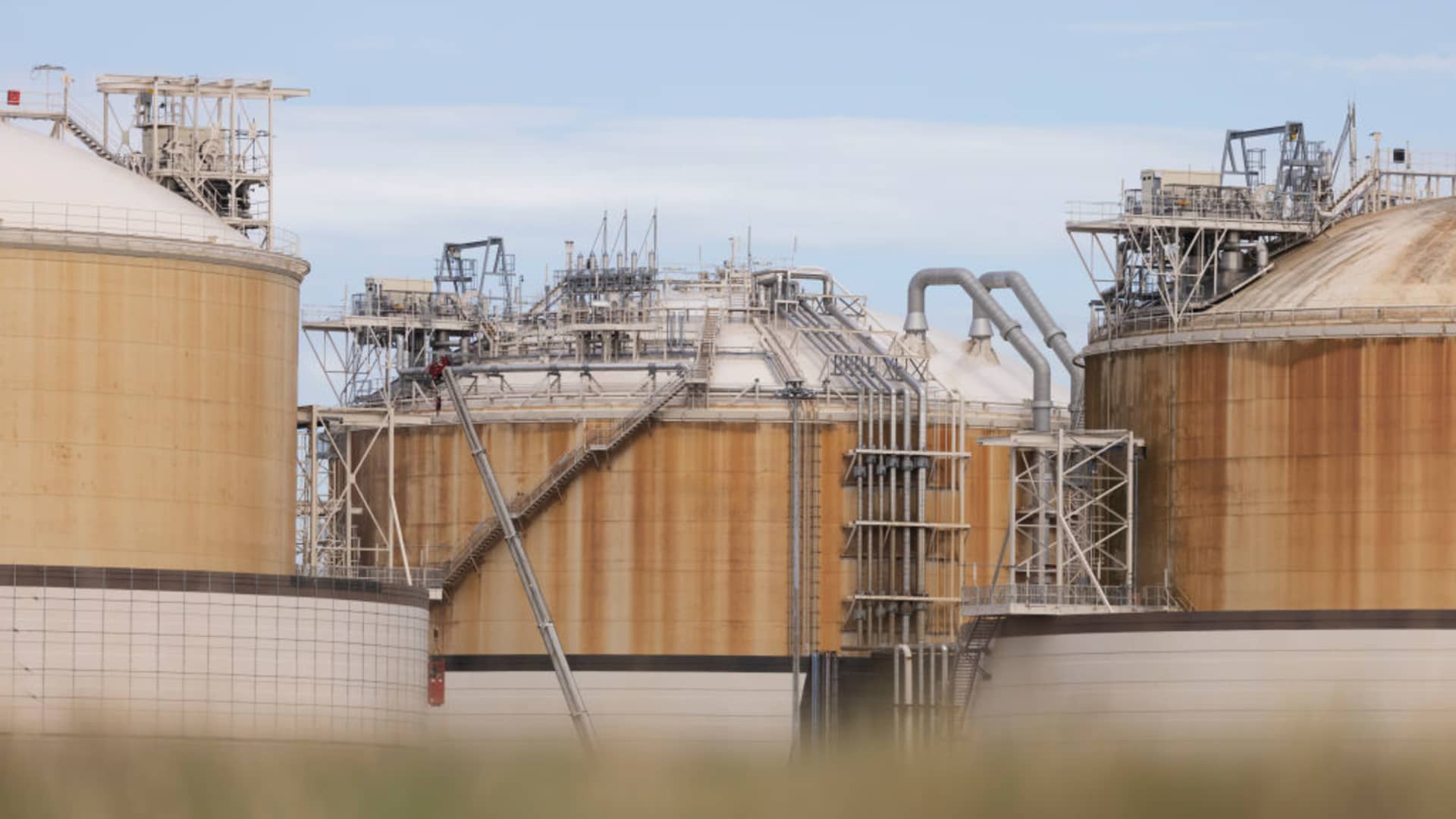European and U.S. natural gas prices rose due to concerns over supply from Australia and Norway, with maintenance at Norwegian gas fields and fears of a strike at Chevron's LNG facilities driving uncertainty.
Workers at Chevron's two LNG plants in Australia are set to go on strike from 7 September, a move that could potentially drive up global prices, following weeks of negotiation over pay and working conditions with unions.
Workers at Chevron's liquefied natural gas facilities in Australia are planning to strike, which could result in a loss of around 7% of global supply and potential price increases.
Workers at Chevron's Gorgon and Wheatstone LNG projects in Australia plan a two-week strike starting on September 14, which could disrupt LNG exports and potentially increase gas prices.
Workers at Chevron's liquefied natural gas facilities in Australia have agreed to delay strike action for one day, easing concerns in the gas market.
European gas prices surged as workers at Australian natural gas facilities went on strike, raising concerns about global supply shortages. The strike, which is a result of failed negotiations over pay and job security, could potentially lead to a two-week halt in production.
Chevron Australia will pursue a legal strategy to stop strikes at its Gorgon and Wheatstone liquefied natural gas facilities in Australia, after failing to reach a deal with unions, potentially risking billions of dollars in export revenue.
European gas markets are expected to experience more volatility and higher prices as preparations for the winter heating season are underway, with disruptions caused by strikes at major liquefied natural gas (LNG) facilities in Australia leading to increased competition for LNG from other suppliers in Asia and Europe.
Car dealerships are preparing for potential strikes by the United Auto Workers against Ford, General Motors, and Stellantis, which could lead to inventory shortages and higher prices for both new and used cars.
A potential strike at major US automakers could have far-reaching economic consequences, including the threat of job losses, reduced spending, disruptions to car component suppliers, and higher prices for consumers, potentially impacting the US economy as it faces other challenges such as high oil prices and a federal government shutdown.
Gas prices have been rising in the US due to drilling restrictions imposed by OPEC, with California having the highest prices; automotive workers in the US, represented by the UAW union, have initiated a large-scale strike against General Motors, Ford, and Stellantis; President Biden believes that auto companies haven't fairly shared their record profits with workers; Senator Sanders supports the strike as a fight for better conditions for the working class; the Federal Reserve will meet to discuss interest rate changes, with the current rate standing at 5.33 percent.
Workers at Chevron's LNG plants in Western Australia have initiated a 24-hour strike, with potential for strikes to continue until mid-October, as part of an ongoing industrial action by the Offshore Alliance union.
